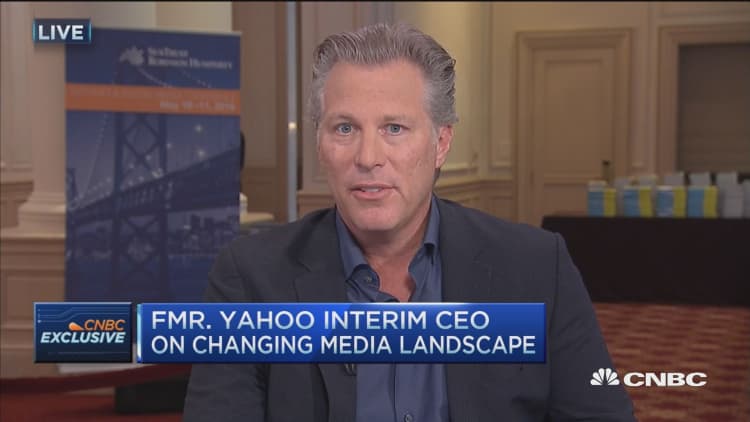The 2016 Rio Olympics have proven to be the sporting spectacle they promised to be, spawning a new generation of stars and cementing the legendary status of others.
But while world records have tumbled and marriage proposals made, broadcasters have had a hard time keeping audiences glued to their screens.
Nielsen ratings show that U.S. television viewership numbers for the 2016 Games have paled in comparison to earlier editions of the games. Opening ceremony numbers for Rio stood at 27.26 million compared with the 40.65 million that tuned in to the 2012 London Games - a 32 percent dip. Daily U.S. television audiences, which averaged around 33 million at the 2012 Games, now stand at 27.9 million.
While viewership numbers in other regions weren't immediately available, U.S. data reflect a global push away from television sets as millions of consumers embrace smartphones and tablets, analysts say. This is especially true for millennials, commonly defined as those aged between 16 to 35 years old.
A global viewing habits report from Euromonitor earlier this month highlighted that audiences no longer watched sports just on their televisions.
Laptops, tablets and smartphones have become the go-to devices for viewers to access content, Euromonitor said.
Traditional broadcasters are only just starting to pay attention to these changes in media consumption patterns and many have taken their first steps into digital territory.

In China, state broadcaster CCTV auctioned airing rights to the Rio Olympics to Tencent and AliSports (a sports-focused unit that is part ofAlibaba group) to enable Chinese viewers to watch the events online.
The internet companies each paid 100 million yuan ($15 million) for the deal but will only be able to screen sporting events half an hour after they have occurred, according to Technode, a Chinese tech blog.
Nevertheless, this will allow Chinese audiences to watch the games on their mobile devices and on demand for the first time. TechNode stated that Olympic-related content will be made available on Tencent Sports, while Alibaba will screen content on its Youku Tudou video platform .
Nielsen reported that even though television remains the predominant channel to watch the games in China, smartphone use is not far behind. According to Nielsen, 83 percent of Chinese surveyed indicated they used the television to watch the Olympics while 67 percent said they used their mobile phones.
Singapore broadcaster Mediacorp is also screening the games through digital channels but one-upped its Chinese counterparts in making live broadcasts available online through its over-the-top service Toggle. This was the first time the Olympics broadcast is being made available on smartphones.
Multitasking is also increasingly common among those who continue to watch television. Research from Statista showed that 91 percent of millennials reported using a second screen simultaneously while watching television. The same report reflected that 69 percent of millennials around the world said that they used their mobile or smartphones when watching TV.

Euromonitor indicated that as viewers watched television, they were most likely to use their second screens to follow live commentary on separate games, interact with their friends about the game being watched and engage with non-sports-related content.
Tech firms have been quick to capitalize on these behavioural trends. Facebook has partnerships with the International Olympic Committee to create and distribute interactive content and videos on both its Instagram and Facebook platforms. Twitter and Snapchat also have similar content agreements with broadcasters.
However, it remains too early to tell if these new media channels will sufficiently substitute the loss in eyeballs on traditional media platforms. "While new disruptors are not yet putting a dent in the [traditional TV] business, they are stealing away future users," said Shiv Putcha, associate director of consumer mobility and telecoms at the market intelligence firm IDC Asia-Pacific.
For now, the relationship between traditional and new media companies appears to be a mutually dependent one. "[T]raditional media companies [rely on social media] to engage with the millennials they are currently losing and tech companies [rely on traditional media to] get access to prime content that will drive their engagement metrics," said Putcha.
Disclosure: CNBC parent NBCUniversal owns NBC Sports and NBC Olympics. NBC Olympics is the U.S. broadcast rights holder to all Summer and Winter Games through the year 2032.

